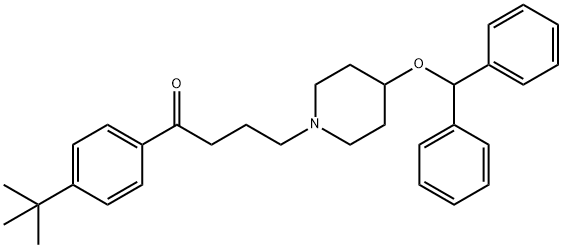Ebastine belongs to an effective second generation histamine H1 receptor antagonist. One important property of it is that it doesn’t penetrate the blood brain barrier. Therefore, it is capable of blocking the H1 receptor in peripheral tissue without having some specific side effects such as sedation and drowsiness. Ebastine is mainly applied for the treatment of allergic rhinitis, pruritus as well as acting as an alternative drug in Decongestant. Upon entering into the human body, it can subject to the action of hepatic cytochrome P450 3A4 to be converted to an active carboxylic acid metabolite, carebastine. The later one is the major active form in vivo. Under certain range, it can inhibit T cell proliferation and the production of Th2-type pro-inflammatory cytokines through macrophages. Ebastine generally has a high safety property without causing cognitive/psychomotor impairment and sedation, like placebo. However, it can cause side effects such as inflammation of the air-cavities around nose, sore throat, indigestion, nausea, headache, and abdominal pain.

